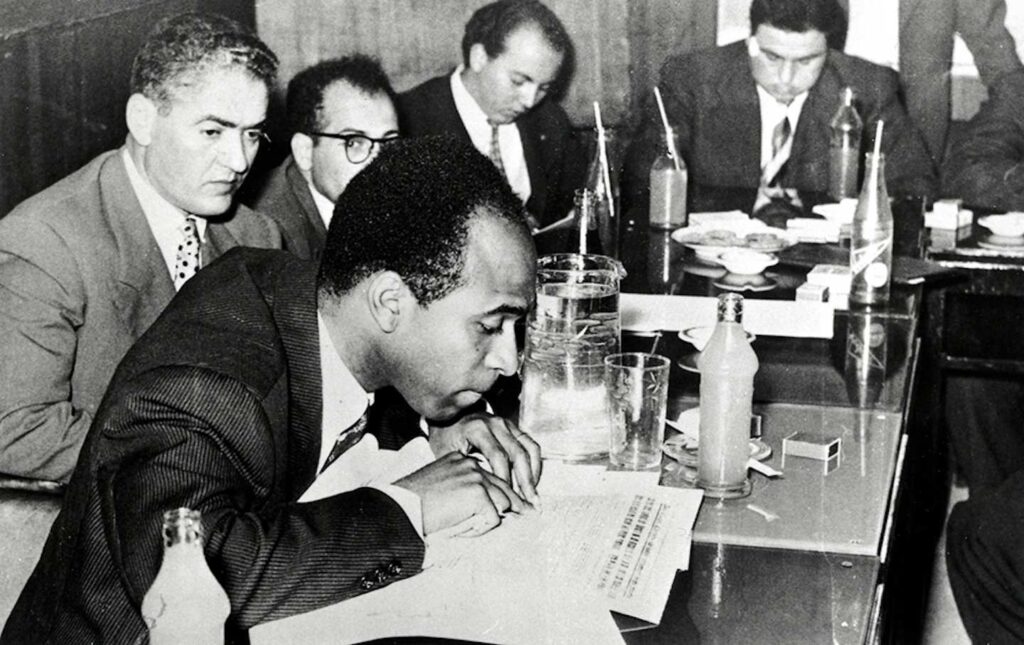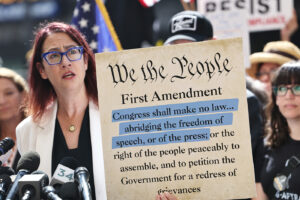September 20, 2024
Taking Frantz Fanon at His Word
By Evan Robins
There has been an effort to negate Fanon’s ideas and sever them from the people of Palestine. But in his work, I find the beginning of a credible path towards liberation.

(Wikimedia)
On a biting day last March, I sought shelter in a basement lecture hall where I hoped, finally, we would stop beating around the bush. My social theory survey class had discussed the communist revolution with Karl Marx, “the revolution that never happened” with Simone de Beauvoir, and was now turning to the national revolution, convening for our lecture on Frantz Fanon. By that time, Israel had killed more than 32,000 Palestinians in Gaza in its brazen campaign of genocidal bombing and starvation.
We were assigned readings from Black Skin, White Masks and The Wretched of the Earth. I anticipated our discussion to center the latter, but Fanon’s anti-colonial treatise, written against the backdrop of the Algerians’ struggle for independence from France, was squeezed into the tail end of the two-hour lecture. Our professor closed with a frantic footnote: “I just want to caution you against thinking of Fanon as the bloodthirsty celebrator of violence he’s often made out to be.”
I was disturbed. That same sentiment seems to have made its way to center stage in the months since October 2023, crowding out an honest, intellectual reappraisal of Fanon’s work. Most notably, in “Vengeful Pathologies,” the widely circulated essay by Adam Shatz—who recently published a new biography on Fanon—the argument has been advanced: All that is inflammatory in “On Violence,” the first chapter of The Wretched of the Earth, is to be qualified, viewed in a larger context, and, ultimately, negated. Fanon must not be taken at his word.


